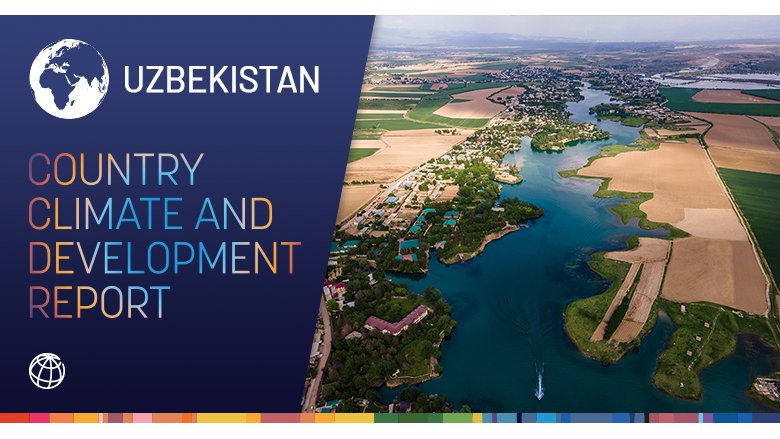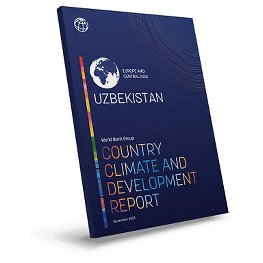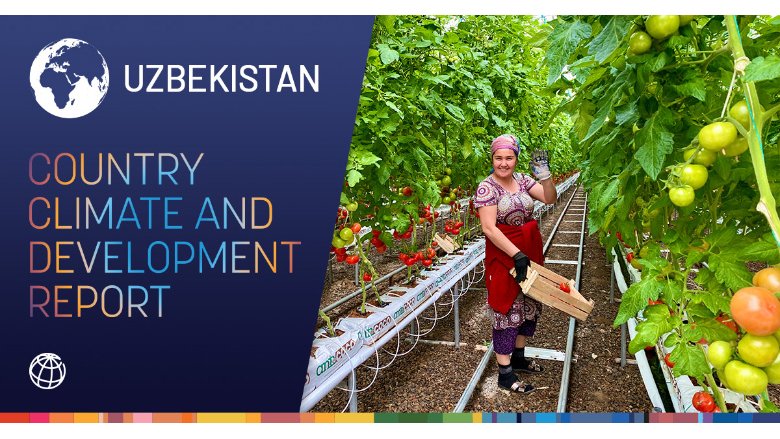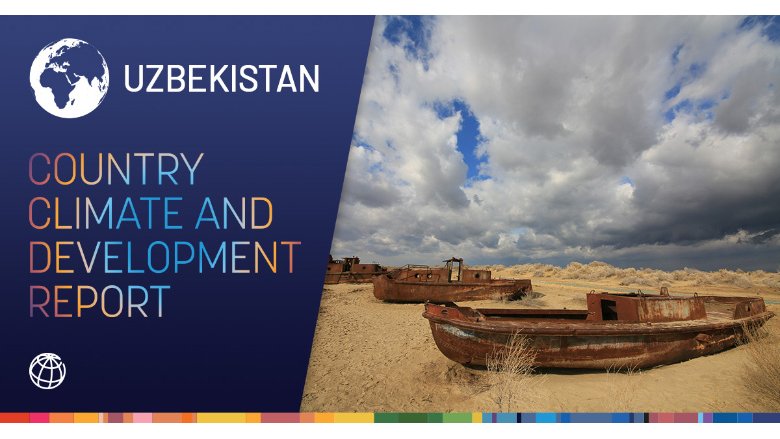The Country Climate and Development Report (CCDR) explores the interaction between climate action and the achievement of carbon neutrality by 2060 with Uzbekistan’s growth and development path. It suggests priority actions to reduce carbon emissions and build resilience while supporting inclusive economic growth and poverty reduction.

Uzbekistan is one of the most energy and resource-intensive countries in the world. With this resource-intensive economic model, the expected rapid population and economic growth will drive a significant increase in emissions, placing excessive strains on the country’s natural resources and ecosystems.
Moreover, unless action is taken on adaptation, climate change risks, including the implications of the Aral Sea ecological disaster, water scarcity, droughts, extreme heat, rainfall volatility, dust storms, and other climate change consequences, will have significant negative impacts on the well-being and health of people as well as growth prospects.
Without action on climate adaptation, Uzbekistan’s economy is predicted to be 10% smaller by 2050, resulting in significantly lower employment and household incomes.
Decarbonizing the domestic economy by 2060 will require a focus on the energy sector, which is responsible for about 75% of Uzbekistan's GHG emissions. Reducing dependence on depleting natural gas reserves through energy efficiency and renewable energy scale-up will contribute to the country’s energy security.
The CCDR proposes a set of urgent actions to advance decarbonization and climate adaptation that will unlock a green transition and underpin Uzbekistan’s long-term growth prospects. The report’s key messages include:
- Setting a path to carbon neutrality by 2060 is an ambitious, but achievable goal, and will support Uzbekistan’s near-term energy security needs and long-term growth prospects.
- Climate adaptation measures have strong induced economic and development benefits in Uzbekistan, making them worthwhile investments even without considering climate risks. The benefits of adaptation investments are two to three times higher than the costs.
- Accelerating the development of Uzbekistan’s private sector is critical to absorb the costs and take advantage of the opportunities of the green transition. Market incentives and financial market development will help bring in the private sector at scale and relieve burdens on public finances.
- Climate mitigation and adaptation policies need to be complemented with carefully designed and well-implemented social protection policy packages to protect vulnerable groups from harm and to win broad support for policy goals. Moreover, skill development and climate action at the local level will be essential to enable a just green transition for the people of Uzbekistan.
Key recommendations of the CCDR include:
- Economy-wide reforms: The government should accelerate the current reform program to support greater business dynamism and private sector development and establish monitoring, reporting, and verification systems to facilitate the scale-up of climate projects. Strengthening financial and investment regulations will also be critical for promoting green investment and climate risk management. The government also could strengthen market incentives to reduce emissions, such as a carbon tax.
- Energy sector: Transitioning to a greener growth model and improving energy security in Uzbekistan requires promoting energy-efficient technologies, eliminating gas, electricity, and heating subsidies, and prioritizing domestic gas use for power generation and industry. Developing a competitive renewable energy sector and investing in energy infrastructure development are also critical.
- Water resources and irrigation management: Enhancing water resource management to cope with climate change in Uzbekistan involves promoting water-saving technologies and climate-aligned agricultural policies, transferring irrigation management to the private sector, introducing flexible water allocation mechanisms, and modernizing water infrastructure and accounting systems.
- Agriculture and land resources management: To attract investments in climate-smart agriculture, it is important to strengthen the land tenure security of local farmers, improve soil conservation practices, scale up climate-smart agriculture, and develop a clear roadmap underpinned by an investment plan to implement these actions.
- Air quality, urban development, and public transport: Uzbekistan will benefit from developing a national program for air quality improvement, green city master plans, urban mobility, and efficient public transport delivery that will curb GHG emissions, reduce congestion, and support climate adaptation measures.
- Human capital development: Uzbekistan will need to continue to strengthen its social protection system to safeguard the most vulnerable groups from climate-related risks, and expand on the quality of foundational and technical skills through education and training opportunities to prepare people for jobs generated by a green economy.
In 2022, Uzbekistan's public spending reached 34% of GDP, surpassing similar income-level countries. The state budget has limited capacity to cover multibillion-dollar costs of decarbonization and climate adaptation measures. A large part of these investments can be carried out by the private sector, if the government creates a conducive environment for both local and foreign investors to support the green transition.
Public and private investments in climate adaptation and decarbonization in Uzbekistan are expected to have high returns. For instance, the use of integrated landscape management and climate-smart technologies in agriculture could raise crop production by $4.6 billion over a 10-year period and save over 1.8 billion cubic meters of water annually.
Decarbonization will also bring substantial benefits across the infrastructure sector, estimated at more than $178 billion over the period of 2023 to 2060, including $112 billion of avoided costs of air pollution, accidents, damage in the residential, power, industry, and transport sectors, as well as $66 billion of fossil fuel import savings.


